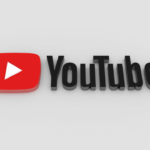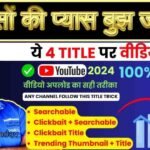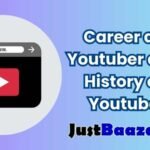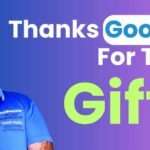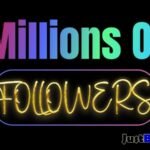Unlocking Sales Funnels: History, Types, and Success Strategies”
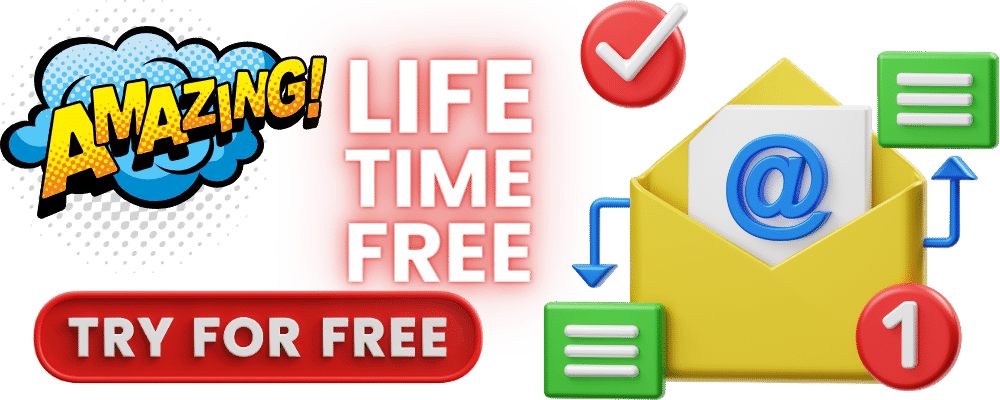
Create Your World-Class Sales Funnel For FREE – Click HERE
Chapter 1: Sales Funnels – An Introduction to the Power of Sales Funnels
In today’s fast-paced world of marketing, sales funnels have become an indispensable tool for businesses of all sizes. They provide a strategic approach to guiding potential customers through a series of steps, ultimately leading them to make a purchase. In this chapter, we will delve into the definition and importance of sales funnels, explore their historical background and evolution, examine different types of sales funnels commonly used today, and showcase case studies that highlight the impact of successful sales funnels on businesses.
First and foremost, let’s define what exactly a sales funnel is. At its core, a sales funnel is a visual representation or metaphorical journey that maps out the customer’s progression from initial awareness to eventual purchase. It allows businesses to understand and optimize each stage of the customer journey by tailoring their marketing efforts accordingly.
The concept of sales funnels has been around for centuries but has evolved significantly with advancements in technology and consumer behavior. Back in ancient times, traders would set up market stalls where potential customers would pass by and be enticed by their products. This can be seen as one of the earliest forms of a sales funnel – attracting attention from a vast audience and then narrowing it down to those interested enough to make a purchase.
Fast forward to today, where technological advancements have completely transformed the way we do business. The rise of e-commerce and digital marketing has given birth to new types of sales funnels that leverage online platforms for maximum reach and efficiency.
Let’s now explore some commonly used types of modern-day sales funnels:
1. Lead Generation Funnel: This type focuses on capturing potential customers’ information through lead magnets such as free e-books or webinars in exchange for their contact details. By building an email list or database filled with interested prospects, businesses can nurture these leads over time until they are ready to make a purchase.
2. Tripwire Funnel: This type aims to convert leads into paying customers by offering low-cost, irresistible offers known as tripwires. These offers act as a stepping stone towards the main product or service, enticing customers to take that initial leap and make their first purchase.
3. Webinar Funnel: Webinars have become a powerful tool for engaging audiences through educational content. This type of funnel usually involves offering a free webinar on a specific topic of interest to the target audience. During the webinar, valuable information is provided, followed by an offer for a more comprehensive solution at the end.
4. High-Ticket Funnel: Designed for selling premium products or services with higher price points, this type of funnel focuses on building trust and authority before presenting the high-ticket offer. It often involves multiple touchpoints and requires effective storytelling and relationship-building strategies.
Now that we have explored the different types of sales funnels, let’s dive into some real-life case studies to understand their impact on businesses:
Case Study 1: Company A implemented a lead generation funnel that offered a free downloadable guide related to their industry expertise in exchange for email addresses. Over time, they built a substantial email list and nurtured those leads through targeted content and personalized emails. As a result, they experienced an increase in conversions and ultimately saw their revenue grow significantly.
Case Study 2: Company B utilized a webinar funnel to engage with their target audience by providing valuable educational content during live webinars. By addressing pain points specific to their industry and showcasing their expertise, they gained credibility among attendees who were more likely to convert into paying customers at the end of the webinar.
These case studies highlight just how powerful sales funnels can be when implemented effectively. They not only attract potential customers but also guide them through each stage of the customer journey until they become loyal advocates for your brand.
Sales funnels are an essential component of any successful marketing strategy. They allow businesses to optimize their efforts, nurture leads, and ultimately drive conversions. By understanding the different types of sales funnels and learning from successful case studies, you can harness the power of sales funnels to propel your business forward.
In the next chapter, we will delve deeper into each type of sales funnel discussed in this chapter – lead generation funnels, tripwire funnels, webinar funnels, and high-ticket funnels – providing a comprehensive understanding of their mechanics and strategies for implementation.
Stay tuned as we continue our exploration into the world of sales funnels!
Create Your World-Class Sales Funnel For FREE – Click HERE
Chapter 2 – Understanding the Different Types of Sales Funnels
Introduction:
In the ever-evolving world of marketing, sales funnels have emerged as a powerful tool for businesses to drive their growth and increase their revenue. In this chapter, we will delve deeper into the various types of sales funnels and how they can be utilized to capture leads, convert them into paying customers, engage audiences through educational content, and sell premium products or services. By understanding these different types of funnels, you will gain valuable insights into which funnel is best suited for your business needs.
Lead Generation Funnels: Capturing Potential Customers’ Information
The first type of sales funnel we will explore is the lead generation funnel. This funnel is designed to capture potential customers’ information and build a database of leads for future marketing efforts. The primary goal is to entice visitors to provide their contact details in exchange for valuable content or resources.
Lead magnets play a crucial role in lead generation funnels by offering something of value to potential customers. This could be an e-book, a checklist, a video tutorial, or any other resource that aligns with your target audience’s needs and interests. By offering these lead magnets through landing pages or pop-ups on your website, you can attract visitors and encourage them to opt-in with their email addresses.
Tripwire Funnels: Converting Leads into Paying Customers
Once you have captured leads through your lead generation funnel, it’s time to convert them into paying customers. This is where tripwire funnels come into play. A tripwire offer is a low-cost product or service that serves as an entry point for customers who are interested in what you have to offer but may not be ready to make a significant investment yet.
The goal of tripwire funnels is twofold: firstly, it allows you to monetize your leads immediately by offering them an irresistible deal; secondly, it helps build trust and establish a relationship with your customers. By delivering exceptional value through your tripwire offer, you increase the chances of converting these customers into repeat buyers in the future.
Webinar Funnels: Engaging Audiences Through Educational Content
Webinars have gained immense popularity in recent years due to their ability to engage audiences through educational content. Webinar funnels are designed to attract potential customers by offering them valuable insights, expert knowledge, and actionable strategies in a live or pre-recorded online seminar.
By promoting your webinar through targeted advertising campaigns or email marketing, you can drive interested individuals to register for the event. During the webinar, you have the opportunity to showcase your expertise while subtly introducing your products or services as solutions to their pain points. The key is to provide immense value during the webinar and leave attendees wanting more.
High-Ticket Funnel Strategies: Selling Premium Products or Services
For businesses that offer premium products or services with higher price points, high-ticket funnels are an effective strategy for selling these offerings. These funnels typically involve a series of steps designed to build trust and establish credibility before presenting the high-ticket offer.
One common approach is to start with a lead generation funnel followed by tripwire offers that gradually increase in price. This allows potential customers to experience the quality of your lower-cost offerings before considering investing in your premium product or service. By nurturing leads through this process and delivering exceptional value at each stage, you can create a sense of anticipation and desire for your high-ticket offer.
Conclusion:
In this chapter, we explored four different types of sales funnels: lead generation funnels, tripwire funnels, webinar funnels, and high-ticket funnels. Each type serves a specific purpose in capturing leads, converting them into paying customers, engaging audiences through educational content, and selling premium products or services.
Understanding these different types of sales funnels is crucial for businesses seeking growth and success. By carefully selecting and implementing the most suitable funnel for your specific needs, you can optimize your marketing efforts and drive significant results. In the next chapter, we will dive deeper into some of the most successful sales funnels in history, showcasing their impact on businesses and providing valuable insights for your own funnel strategies.
Create Your World-Class Sales Funnel For FREE – Click HERE
Chapter 3: The Most Successful Sales Funnels in History
Introduction:
In the ever-evolving world of marketing, sales funnels have emerged as a powerful tool for businesses to attract and convert customers. In this chapter, we will explore some of the most successful sales funnels in history, analyzing their strategies and dissecting their impact on revenue generation. By studying these legendary funnels, we can gain valuable insights into creating effective and profitable sales funnels for our own businesses.
1. The “Dotcom Secrets” Funnel:
One of the most influential figures in the world of sales funnels is Russell Brunson, who created the legendary “Dotcom Secrets” funnel. This funnel revolutionized online marketing and generated millions in revenue for Brunson’s business empire. The “Dotcom Secrets” funnel is a comprehensive system that combines lead generation, tripwire offers, webinars, and high-ticket products to maximize customer acquisition and retention.
Brunson’s funnel starts with a lead generation phase where potential customers are attracted through targeted ads or content marketing strategies. Once leads are captured, they are nurtured through automated email sequences that provide valuable information while building trust with the audience.
The next stage is where Brunson employs tripwire offers – low-cost products or services that act as an entry point into his sales ecosystem. These offers provide immense value to customers while simultaneously positioning them for further upsells.
Webinars play a crucial role in this funnel by engaging audiences with educational content that addresses pain points and presents solutions. Through persuasive storytelling techniques and live interactions, Brunson establishes himself as an authority figure while showcasing his premium offerings.
Finally, high-ticket products or services are introduced to those who have been primed by previous stages of the funnel. These premium offerings capitalize on the trust established throughout the customer journey and result in significant revenue generation.
2. Jeff Walker’s “Product Launch Formula” Funnel:
Another groundbreaking example of a successful sales funnel is Jeff Walker’s “Product Launch Formula.” This funnel transformed the way online products were launched, creating a sense of anticipation and excitement among potential customers.
Walker’s funnel begins with a pre-launch phase where he builds awareness and generates curiosity around his upcoming product. Through strategic email sequences, social media campaigns, and engaging content, he creates a buzz that captures the attention of his target audience.
Next comes the launch phase, where Walker leverages scarcity and limited-time offers to drive sales. By creating a sense of urgency, he motivates potential customers to take immediate action before missing out on exclusive deals or bonuses.
Throughout the entire launch process, Walker nurtures his audience by providing valuable free content in exchange for their contact information. This allows him to build an email list of highly interested prospects who can be further engaged with future offers and promotions.
3. Tony Robbins’ “Unleash the Power Within” Event Funnel:
A remarkable example of a successful event-based sales funnel is Tony Robbins’ “Unleash the Power Within” (UPW) funnel. For many years, UPW has consistently attracted massive crowds seeking personal development and transformational experiences.
Robbins’ event funnel starts with an extensive marketing campaign that includes targeted advertisements, captivating videos, and compelling testimonials from previous attendees. The messaging focuses on the life-changing impact of attending UPW events and positions Robbins as an unparalleled expert in personal growth.
To entice potential attendees further, Robbins offers early bird discounts or limited-time payment plans for ticket purchases. These incentives create urgency while making the event more accessible to a broader range of people.
Throughout the event itself, Robbins delivers powerful speeches filled with motivational strategies and practical tools for personal transformation. Attendees are encouraged to take immediate action during these sessions by participating in exercises designed to break through limiting beliefs or develop empowering habits.
The success of this funnel lies not only in its ability to attract audiences but also in the follow-up process. Robbins ensures that attendees feel supported and motivated even after the event ends, offering additional resources, coaching programs, and exclusive membership opportunities.
Conclusion:
These are just a few examples of the most successful sales funnels in history. By studying these legendary funnels created by Russell Brunson, Jeff Walker, and Tony Robbins, we can gain valuable insights into building our own effective sales funnels. Whether it’s combining lead generation with tripwire offers or leveraging the power of events to create lasting transformations, these successful funnels have set a benchmark for businesses worldwide. In the next chapter, we will explore another powerful type of sales funnel – Video Sales Letter (VSL) funnels – and how they engage audiences through captivating storytelling techniques.
Create Your World-Class Sales Funnel For FREE – Click HERE
Chapter 4: The VSL Funnel: Engaging Audiences Through Video
Introduction:
In today’s fast-paced digital world, capturing the attention of potential customers has become a challenging task for businesses. Traditional sales methods no longer hold the same power they once did. This is where video comes into play. With its ability to captivate and engage audiences, video has become an essential tool in marketing strategies. In this chapter, we will dive deep into the world of Video Sales Letter (VSL) funnels and explore how they can be utilized to create compelling narratives that drive conversions.
Section 1: The Power of Video Sales Letters
Video Sales Letters have revolutionized the way businesses communicate with their customers. Unlike traditional long-form sales letters, VSLs leverage storytelling techniques to create an emotional connection with viewers. By combining visuals, audio, and persuasive scripts, VSLs capture attention and keep audiences engaged throughout the entire presentation.
Section 2: Crafting Persuasive VSL Scripts
The success of any VSL lies in its script. A well-written script addresses pain points while presenting a compelling solution that resonates with viewers. To achieve this, it is crucial to understand your target audience and their needs intimately. By crafting a script that speaks directly to your audience’s desires and challenges, you can establish trust and credibility.
To start off your script, grab your viewers’ attention by highlighting a relatable problem or pain point they may be facing. This creates an emotional connection right from the beginning. Next, present your product or service as the solution to their problem by showcasing its unique benefits and features in a clear and concise manner.
Throughout your script, use persuasive language and storytelling techniques to keep viewers engaged till the end. Incorporate testimonials or case studies from satisfied customers who have experienced positive results after using your product or service.
Section 3: Optimizing Video Production Quality
To ensure maximum impact, it’s essential to optimize the production quality of your VSL. Here are a few key elements to consider:
1. Lighting: Proper lighting can make a significant difference in the overall visual quality of your video. Ensure that the subject is well-lit, avoiding harsh shadows or overexposure.
2. Sound: Clear and high-quality audio is crucial for viewers to understand your message without any distractions. Invest in a good microphone and eliminate background noise during recording.
3. Visual Elements: Incorporate relevant visuals, such as product images or demonstrations, to enhance the viewer’s understanding and engagement with your offering.
Additionally, consider the length of your video. While there is no fixed duration for a VSL, it should be concise enough to maintain viewers’ attention while conveying all necessary information effectively.
Section 4: Case Studies of Successful VSL Funnels
To further illustrate the power of VSL funnels, let’s explore some real-life case studies:
Case Study 1: Company X – A software company utilized a VSL funnel to launch their latest product update successfully. By showcasing how their software solved common pain points faced by their target audience through compelling storytelling techniques, they achieved an impressive conversion rate and significantly increased revenue.
Case Study 2: Business Y – A coaching business implemented a VSL funnel to promote their online courses. By highlighting success stories from previous students and demonstrating how their courses delivered tangible results, they saw an exponential increase in enrollments and established themselves as industry leaders.
Conclusion:
Video Sales Letter funnels have proven themselves as highly effective tools for engaging audiences and driving conversions. By leveraging persuasive scripts, optimizing production quality, and sharing compelling success stories through video presentations, businesses can create impactful experiences that resonate with viewers on an emotional level.
In the next chapter, we will explore the different types of sales funnels suitable for digital coaches and analyze which one best aligns with their specific needs and goals.
Create Your World-Class Sales Funnel For FREE – Click HERE
Chapter 5: Choosing the Best Funnel for Digital Coaches
Introduction:
In the ever-evolving world of digital coaching, sales funnels have become an indispensable tool for attracting and converting potential clients. With an array of options available, it is crucial for digital coaches to choose the right funnel that aligns with their target audience, desired outcomes, and available resources. In this chapter, we will explore the evaluation criteria for selecting a sales funnel specifically tailored to digital coaching businesses. We will delve into various types of funnels suitable for this industry and provide real-life case studies showcasing successful coaches who have achieved their goals through effective funnel implementation.
Evaluation Criteria for Digital Coaches:
When it comes to choosing a sales funnel as a digital coach, several key factors should be considered. Firstly, understanding your target audience is essential in determining which type of funnel will resonate with them most effectively. Are you targeting individuals seeking personal development? Entrepreneurs looking to scale their businesses? By identifying your niche market and their specific needs, you can tailor your funnel accordingly.
Secondly, defining your desired outcomes is crucial in selecting a suitable sales funnel. Are you aiming to generate leads for one-on-one coaching sessions? Or perhaps you want to sell online courses or group programs? Clearly defining your goals will help you determine which type of funnel aligns best with achieving those objectives.
Lastly, assessing your available resources is vital in choosing a practical and sustainable sales funnel. Consider factors such as time constraints, technical expertise required, and financial investments necessary to implement and maintain the chosen funnel. It’s important to find a balance between an effective strategy and one that doesn’t overwhelm or strain your resources.
Types of Funnels Suitable for Digital Coaches:
Lead Generation Funnel:
For many digital coaches, generating qualified leads is the first step towards building successful client relationships. Lead generation funnels focus on capturing potential customers’ information through various lead magnets such as free guides, quizzes, or webinars. By offering valuable content in exchange for contact details, digital coaches can nurture these leads and convert them into paying clients through targeted follow-ups.
Webinar Funnel:
Webinars have become a popular medium for digital coaches to engage their target audience while showcasing their expertise. Webinar funnels involve inviting potential clients to attend a live or pre-recorded online presentation where the coach delivers valuable and educational content. Through strategic follow-up sequences, coaches can then convert webinar attendees into paying customers by presenting offers that align with the webinar topic.
High-Ticket Funnel:
For digital coaches offering premium services or products at higher price points, high-ticket funnels can be highly effective. These funnels focus on building trust and nurturing relationships with potential clients through value-driven content such as case studies, testimonials, and personalized consultations. By providing immense value upfront and demonstrating expertise, coaches can attract clients willing to invest in their premium offerings.
Real-Life Case Studies:
To provide practical examples of successful digital coaches and the funnels they implemented to achieve their goals, let’s explore two case studies:
Case Study 1: Sarah Thompson – Health & Wellness Coach
Sarah Thompson is a health and wellness coach specializing in holistic nutrition. Her target audience consists of busy professionals seeking to improve their overall well-being through healthy lifestyle habits. Sarah implemented a lead generation funnel by offering a free e-book titled “7 Days to Radiant Health” in exchange for visitors’ email addresses on her website. Through automated email sequences featuring valuable tips and personalized content tailored to her subscribers’ needs, Sarah nurtured those leads into paying clients for her one-on-one coaching programs.
Case Study 2: Michael Reynolds – Business Coach
Michael Reynolds is an experienced business coach who helps entrepreneurs scale their businesses effectively. As part of his sales funnel strategy, Michael hosts regular webinars where he shares insights on topics such as marketing strategies and business growth tactics. After attending his webinars, participants receive follow-up emails with additional resources and special offers for his group coaching programs. By leveraging the power of webinars and providing immense value during those sessions, Michael successfully converts webinar attendees into paying clients.
Conclusion:
Choosing the best sales funnel for digital coaches requires careful consideration of target audience, desired outcomes, and available resources. Whether it’s a lead generation funnel, webinar funnel, or high-ticket funnel, digital coaches can effectively attract and convert potential clients by implementing the right strategy. Through real-life case studies like Sarah Thompson and Michael Reynolds, we see how these funnels have propelled their coaching businesses to success. By aligning your goals with a well-suited sales funnel, you can position yourself as an authority in your niche and achieve your desired outcomes as a digital coach.

